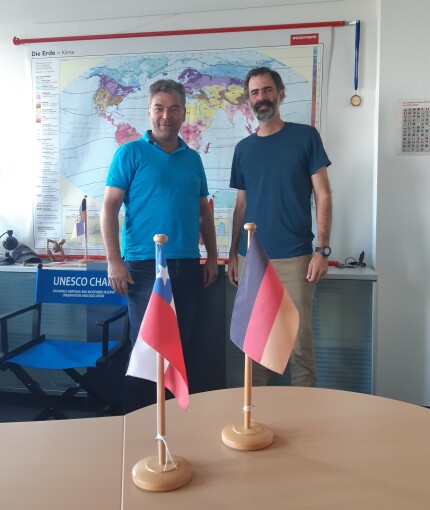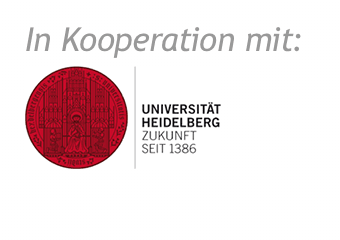Chile-Kooperation: Dr. Camilo del Río besucht rgeo
Within the framework of the research cooperation on fog ecosystems in the Atacama Desert between the Research Group for Earth Observation (rgeo) and the Centro UC Desierto de Atacama (CDA) of the Pontificia Universidad Católica de Chile, Dr. Camilo del Río is currently visiting rgeo from June 24th to August 26th.
His visit seeks to strengthen the collaboration between both institutions and discuss the progress of ongoing projects, potential scientific publications and possibilities for new funding.
Dr. del Río has commented "the relationship between CDA and rgeo continues to increase year after year. We are consolidating our joint research with a series of scientific publications that show how step by step we are increasing our understanding of the fog geo-ecosystem. The scientific findings are the result of a monitoring network of atmospheric and biological variables that we have built together with a lot of effort. As CDA we have much to thank Prof. Dr. Alexander Siegmund and rgeo team. We look forward to a long-lasting collaboration”.
The cooperation between both institutions is long-standing and has managed to develop a broad and robust multidisciplinary research network on the dynamics of the stratocumulus (Sc) cloud, regional fog climate and fog ecosystems.

------------------------------
Im Rahmen der Forschungskooperation zwischen der Research Group for Earth Observation (rgeo) und dem Centro UC Desierto de Atacama (CDA) der Pontificia Universidad Católica in Chile zu Nebel-Ökosystemen in der Atacama-Wüste, besucht Dr. Camilo del Río die Abteilung für Geographie vom 24. Juni bis zum 26. August 2021. Sein Besuch soll die Kollaboration zwischen beiden Institutionen und den Austausch innerhalb des laufenden Projekts hinsichtlich möglicher Publikationen und neuer Fördermöglichkeiten stärken.
Dr. del Río führt an: "Die Zusammenarbeit zwischen CDA und rgeo wird von Jahr zu Jahr stärker ausgebaut. Mit einer Reihe wissenschaftlicher Publikationen legen wir unsere gemeinsame Forschung zusammen und steigern somit Schritt für Schritt unser Verständnis über das Nebel-Geo-Ökosystem. Die wissenschaftlichen Studien sind das Ergebnis eines Monitoring-Netzwerks aus atmosphärischen und biologischen Variablen, das wir unter großem Aufwand gemeinsam aufgebaut haben. Als CDA danken wir Prof. Dr. Alexander Siegmund und dem rgeo-Team sehr – und freuen uns auf eine lang andauernde Zusammenarbeit."
Die Kooperation zwischen beiden Institutionen besteht bereits seit mehreren Jahren und hat ein multidisziplinäres Netzwerk ausgebildet, dass sich mit der Dynamik von Haufenschichtwolken (Stratocumuli), regionalem Nebelklima und Nebel-Ökosystemen beschäftigt.





